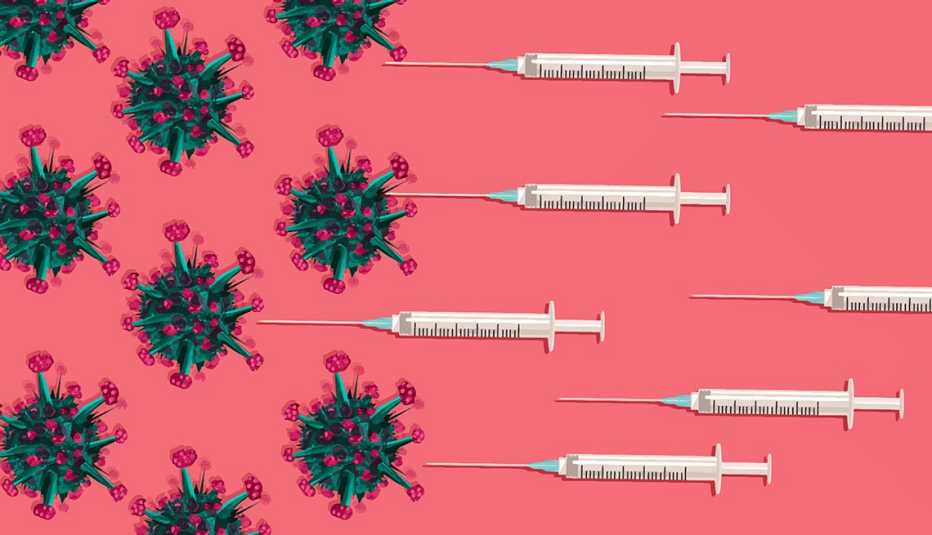Staying Fit


The first coronavirus vaccines became available in the U.S. in late 2020, and ever since, one thing has become clear: The initial shots and subsequent boosters have saved countless lives — some studies estimate more than 3 million.
Vaccinated adults who received a dose of the most recent booster, what’s known as a bivalent vaccine, are 5.3 times less likely to die from COVID-19 than their unvaccinated peers, March data from the Centers for Disease Control and Prevention (CDC) shows. Their odds of surviving a coronavirus infection are also greater than vaccinated adults who skipped out on the new booster, which has been available since September 2022.


AARP Membership— $12 for your first year when you sign up for Automatic Renewal
Get instant access to members-only products and hundreds of discounts, a free second membership, and a subscription to AARP the Magazine.
And a study published in The New England Journal of Medicine in February 2023 found that the bivalent shots were 37 percent more effective at preventing severe COVID-19 than the original boosters. But how long does this protection last?
Scientists are learning more every day. Here’s what we know so far about the durability of a booster shot and what that could mean for the future.
Many factors determine length, degree of COVID protection
It’s important to keep in mind that the vaccines offer “a gradient of protection” that is influenced by a number of factors, including age, genetics, the immune system and underlying health conditions, says Gregory Poland, M.D., professor of medicine and infectious diseases at the Mayo Clinic in Rochester, Minnesota, and founder and director of Mayo’s Vaccine Research Group. “There is no light switch here.”
Federal data shows the boost in protection from infection and illness afforded by the boosters, including the bivalent booster, tends to wane after a few months. That doesn’t mean the body becomes defenseless overnight, however.




































































More From AARP
COVID Can Be Hard on the Heart
Even a mild infection may raise the risk of heart attack, stroke, and cardiovascular disease
Can You Reuse an N95 Mask?
Plus other key things to know about wearing a respirator Three Most Dangerous Underlying Conditions for COVID-19
These chronic health problems worry doctors the most when it comes to the coronavirus